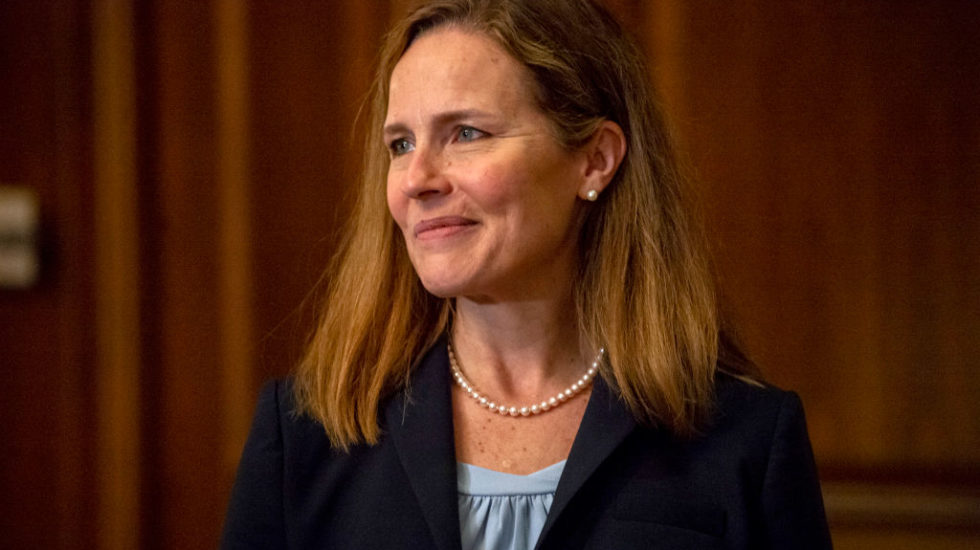Amy Coney Barrett was confirmed by the Senate as an associate justice of the U.S. Supreme Court on Monday evening, climaxing the most politicized judicial appointment of our time.
The confirmation vote in the currently Republican-majority Senate was 52-48 on party lines, except for Republican Sen. Susan Collins of Maine,
who is fighting a desperate re-election battle and chose to vote no.
Vice President Mike Pence was supposed to preside over the session in his constitutional role as President of the Senate — but bowed out under pressure after several members of his staff tested positive for the coronavirus.
Barrett’s confirmation was clearly assured long before Majority Leader Mitch McConnell began a lengthy defense of the Republicans’ handling of the entire process. When he finally finished near 8 p.m. ET, the vote in the half-empty chamber proceeded quickly.
Barrett was to be sworn in at a White House ceremony shortly after the confirmation, although the swearing-in was just a formality.
Barrett’s lifetime appointment will likely cement the high court’s conservative majority at 6-to-3 for decades to come. And the more than 200 other Trump-appointed federal judges already in place (about 30% of the total) will bolster the long-term rightward tilt of the judicial system.
“We’ve made an important contribution to the future of this country,” Senate Majority Leader Mitch McConnell declared in a Sunday speech. “A lot of what we’ve done over the last four years will be undone sooner or later by the next election,” he said.
“They won’t be able to do much about this for a long time to come.”
“The court will be in session starting Nov. 2 and will hear a case concerning the LGBTQ community and religious freedoms, along with a highly anticipated case that could decide the future of the Affordable Care Act,” says USA Today.
I am angry. https://t.co/fjO9joOSoH
— Brian Schatz (@brianschatz) October 26, 2020
While it comes as no surprise, Barrett’s confirmation will also intensify the scorching political battle being waged just eight days before the 2020 election, including especially which party controls the Senate after the smoke has cleared.
Democrats fought hard over the weekend to slow the process down. But in the end, the GOP’s 53-48 Senate majority held.
“Since 2017 … Senate Republicans have prioritized filling vacancies on the Supreme Court and on the circuit courts, where the vast majority of legal cases on a litany of matters, including health care, the environment and government regulations, are settled,” reports the Washington Post.
“To get there, Republicans and the White House revised Senate rules and reversed key practices used by their Democratic predecessors in evaluating judicial nominees — traditions that some Senate Democrats said they should similarly disregard if they take control of the Senate.”
Barrett, 48, concedes that her judicial conservatism grows in part from her deep religious roots in the Roman Catholic church, and her association with ecumenical Christian groups like the “charismatic” People of Praise.
Perspective: Amy Coney Barrett’s philosophy has far worse roots than most Americans know https://t.co/OFcBStwLct
— The Washington Post (@washingtonpost) October 26, 2020
“Democrats have warned that Barrett’s confirmation will put health care protections and the Affordable Care Act [Obamacare] in jeopardy,” says CNN.
“They have argued that the confirmation process has been rushed and accused Republicans of hypocrisy in moving ahead with the nomination after blocking consideration of former President Obama’s Supreme Court nominee Merrick Garland in 2016,” the last presidential election year.
“The Republican Party is willing to ignore the pandemic to rush this Supreme Court nomination forward,” Senate Democratic leader Chuck Schumer said in a speech on Sunday.



